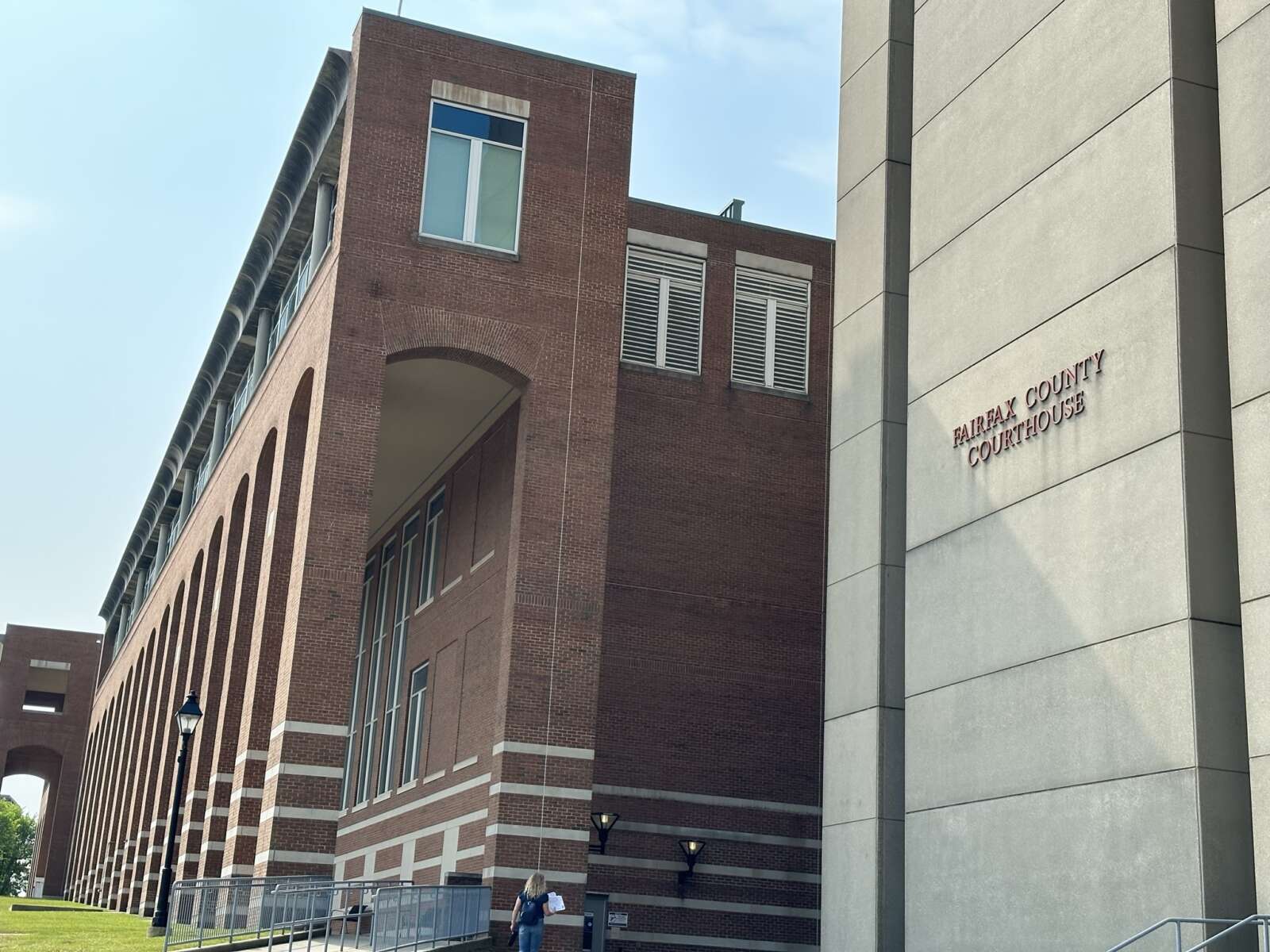
A Fairfax County judge is weighing whether to throw out a lawsuit from environmental groups challenging Republican Gov. Glenn Youngkin’s effort to remove Virginia from a regional carbon market.
Judge David Oblon heard oral arguments from Virginia Solicitor General Andrew Ferguson and Southern Environmental Law Center Senior Attorney Nate Benforado Friday morning in Fairfax Circuit Court. The hearing, which lasted about 30 minutes, concluded with the judge saying he would take the case under advisement before issuing a written decision.
Ferguson argued on behalf of the State Air Pollution Control Board, the Department of Environmental Quality and DEQ Director Mike Rollband to dismiss the lawsuit filed by SELC on behalf of Faith Alliance for Climate Solutions (FACS), Appalachian Voices, Interfaith Power and Light and the Association of Energy Conservation Professionals. The suit challenges Youngkin’s regulation to remove Virginia from the Regional Greenhouse Gas Initiative.
The Regional Greenhouse Gas Initiative, or RGGI, is a multi-state carbon market that requires electricity producers to purchase allowances to emit carbon. The allowances are then returned to the states; in Virginia, those proceeds are funneled into energy efficiency and flood resilience programs.
Youngkin, even before he became governor, has alleged that RGGI creates a “hidden tax” on Virginia utility customers, since utilities in Virginia are allowed to recover costs for the allowances from their ratepayers.
In July, the administration published the regulation to repeal Vrignia’s participation in RGGI at the end of this year.
Environmental groups have decried the withdrawal since Youngkin began pushing for it by citing the funds – over $500 million – it directs toward reducing energy bills for customers by helping homes conserve energy better and preventing flood damage through planning and infrastructure projects.
On Friday, Ferguson opened arguments by stating that out of all the plaintiffs, only the Association of Energy Conservation Professionals had demonstrated any harm worthy of a lawsuit because the group claims that they work with professionals who rely on the revenues the state receives from RGGI. The suit from the other groups, including Fairfax County-based FACS, doesn’t demonstrate that the other entities are directly impacted by the loss of any RGGI revenues, and should be dismissed, Ferguson argued.
The environmental groups could also have jurisdiction in Floyd County, where the Association of Energy Conservation is based, in Richmond where Interfaith Power and Light is headquartered and in Charlottesville, where the Southern Environmental Law Center is based, Ferguson added. He said that in the interest of “judicial economy,” the case should be dismissed entirely and not allowed to be transferred elsewhere, to prevent the plaintiffs from searching for favorable venues. Read More

Virginia is beginning to create plans for how to reduce greenhouse gas emissions, the primary driver of climate change, on a state and regional basis thanks to millions of dollars from the federal government.
This June, the U.S. Environmental Protection Agency awarded about $6 million in grants to Virginia’s Department of Environmental Quality, regional planning organizations in Northern Virginia, Richmond and Hampton Roads and the Monacan Indian Nation to create two plans.
One, the Priority Climate Action Plan, will identify projects that can immediately start reducing greenhouse gas emissions. The other, the Comprehensive Climate Action Plan, aims to craft long-term strategies to achieve reductions.
“This grant will help us plan for reducing climate pollution and promoting climate resilience in the commonwealth, both of which are central to our mission,” said DEQ Director Mike Rolband at a webinar last week. “Just as changing climatic conditions impact all of Virginia, these changes also impact all of the environmental programs here at DEQ. “
The funding for the Climate Pollution Reduction Grants program comes from the Inflation Reduction Act, major federal legislation passed last year that aims to spur investments in climate technologies.
The priority plan is due in March 2024. Projects included in the plan will be eligible to compete for an additional $4.6 billion round of grants for implementation.
The comprehensive plan is due later, in July 2025, and will involve broader strategies for reducing emissions from the transportation, electricity and other sectors, as well as an analysis of the benefits of greenhouse gas reductions.
Both plans require that officials consider the benefits of reductions for low-income and disadvantaged communities and monitor emissions.
Statewide plan
Virginia’s Department of Environmental Quality will be the lead agency coordinating the state’s planning process, which will include the Virginia Department of Transportation, Department of Housing and Community Development, Department of Conservation and Recreation and other agencies.
Virginia has already taken a number of significant steps to reduce greenhouse gas emissions, many of which DEQ cited in its application to the EPA.
The 2020 Virginia Clean Economy Act seeks to decarbonize the state’s electric grid by 2050 by setting renewables development targets for regulated utilities and mandating that increasing portions of their generation be carbon-free. In 2021, Virginia also tied its vehicle emissions standards to California’s rather than remaining on the federal standard in an effort to drive greater adoption of electric vehicles, and the state is planning to use National Electric Vehicle Infrastructure program funds for charging infrastructure buildouts.
Additionally, Virginia since 2021 has participated in the regional carbon market known as the Regional Greenhouse Gas Initiative, or RGGI. That program requires electricity producers to pay for allowances for each ton of carbon they emit and returns the revenues to the state for energy efficiency and flood preparedness programs. Read More

